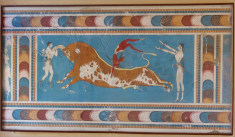Speaker
Description
The GERDA experiment, located in the underground Laboratori Nazionali del Gran Sasso in Italy, has been designed to search for the neutrinoless double-beta (0vbb) decay in 76Ge. It used in different stages of the project up to 44 kg of high purity germanium (HPGe) detectors enriched up to about 86% in the isotope 76Ge. The bare detectors were operated in liquid argon, which served in the first phase as a passive and later, in the second phase of the experiment, also as an active shield. The combination of powerful background suppression techniques (liquid argon veto and pulse shape discrimination) together with excellent energy resolution of HPGe detectors allowed GERDA to be the first background-free (less than 1 background event expected in the region of interest) 0vbb decay experiment. After about 5 years of data taking together in Phase I and Phase II more than 100 kg*yr of data has been accumulated, as foreseen in the original proposal. Combining all available data no signal is observed, and a lower limit on the half-life of the 0νββ decay in 76Ge is set at T1/2 > 1.8 x 10^26 yr at 90% C.L, which is presently the strongest limitation. In the talk the design of the experiment and details of the data analysis will be presented. A prospect for the successor Legend-200 experiment will be outlined as well.
Details
Grzegorz Zuzel for the GERDA Collaboration
| Is this abstract from experiment? | Yes |
|---|---|
| Name of experiment and experimental site | GERDA |
| Is the speaker for that presentation defined? | Yes |
| Internet talk | No |
